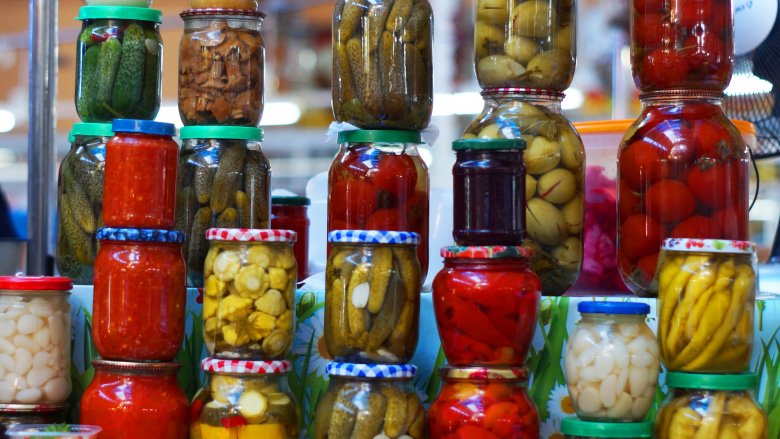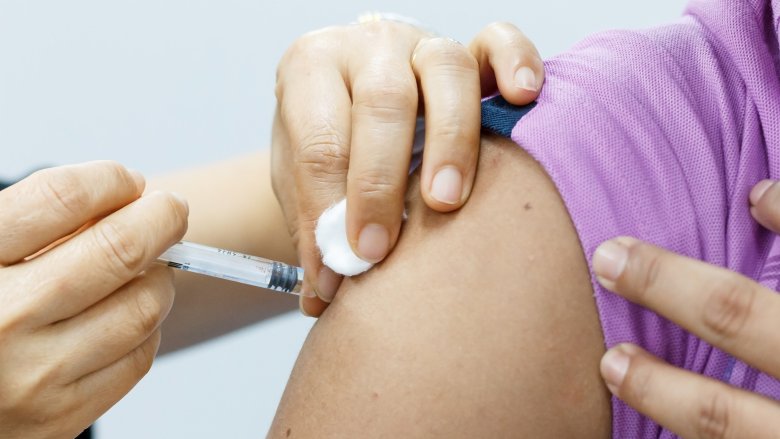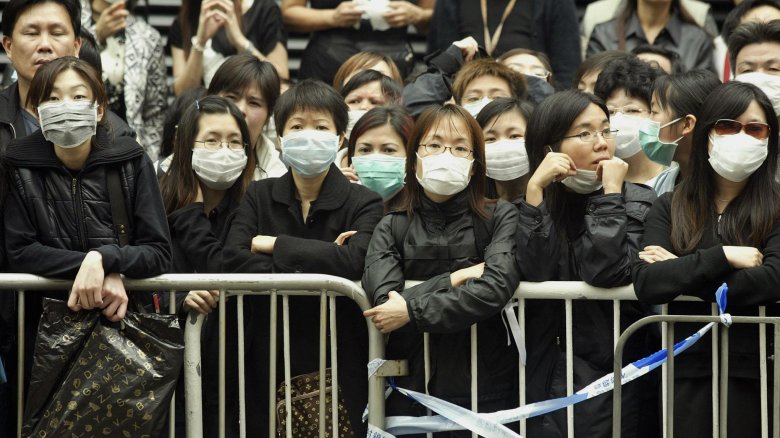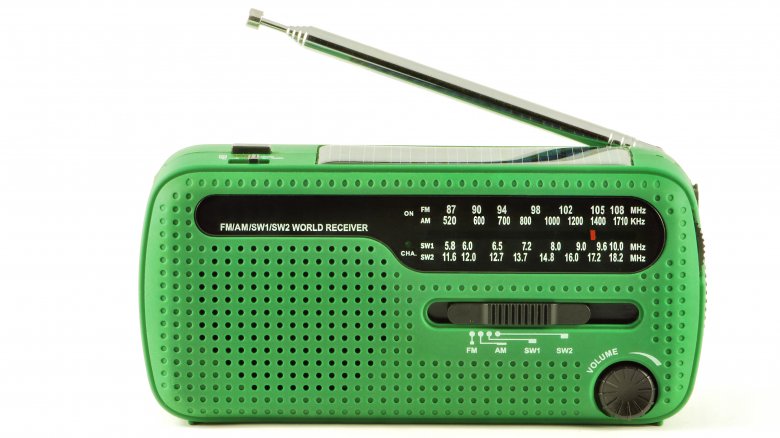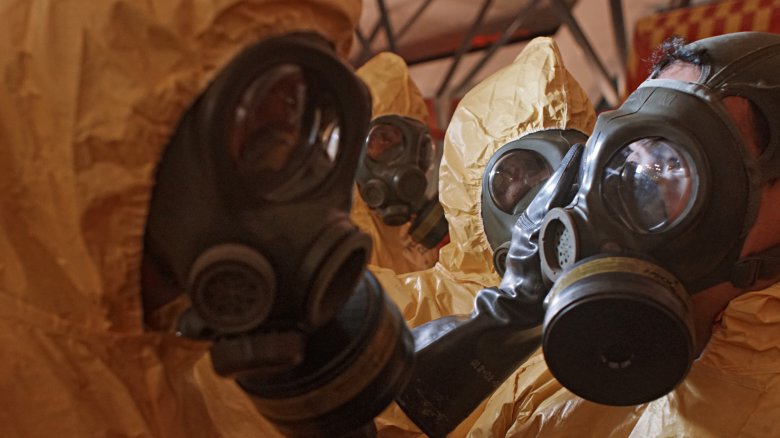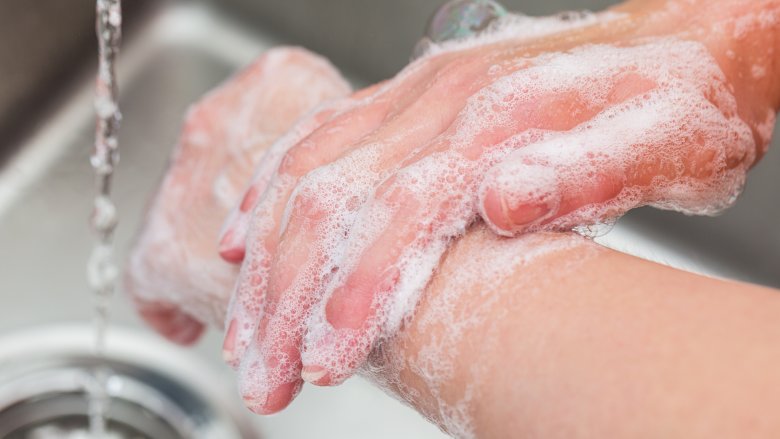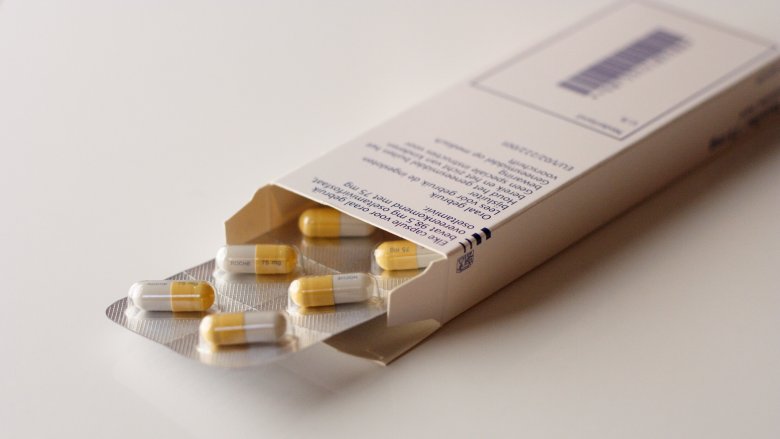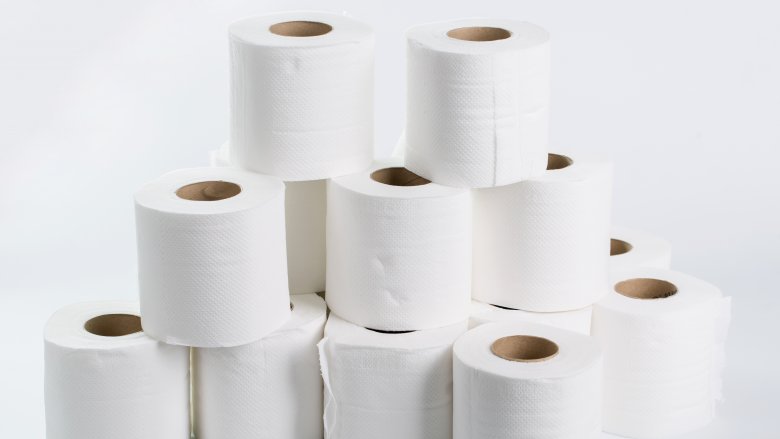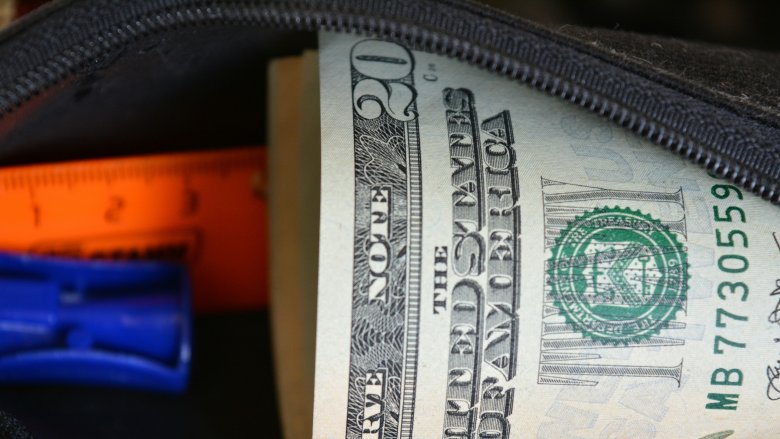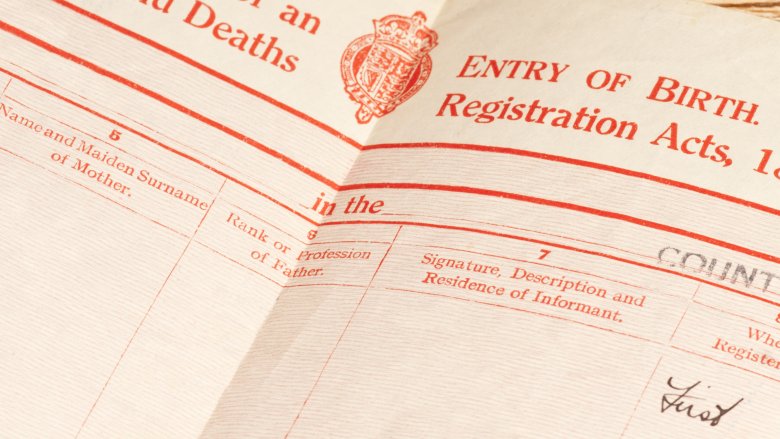How To Survive A Pandemic
Not to scare you or anything, but we're totally overdue for a pandemic. Plague, specifically bubonic plague, we've got covered, because even though the yersinia pestis bacterium still lingers (mostly in those adorable chipmunks you've been feeding on camping trips), antibiotics do a semi-decent job of knocking it out. A pandemic, on the other hand, is any disease with the potential to wipe out a lot of people over a large geographic area.
The last major pandemic hit in 1918, infecting one-third of the planet's population and killing between 20 million and 50 million people. And don't think you're safe just because you're young and healthy — the 1918 outbreak was particularly deadly for young adults.
According to The Guardian, society could crumble a mere 13 days after a major pandemic — a claim that seems a little outrageous, but then again, it probably doesn't hurt to be prepared for the worst. The good news is that a pandemic is survivable, as long as you're stocked up and sort of maniacally paranoid.
Be a crazy prepper
There's a fine line between being a crazy prepper and everyone knowing you're a crazy prepper. Because prepping is really only sort of crazy. The fact is that there will be a global pandemic someday ... maybe not next week, maybe not next decade, but someday. So does it really hurt to buy a few extra cans of beans until you have a handy stockpile, you know, just in case?
Gizmodo says you should have at least two weeks' worth of food and water stashed away. Actually to be on the safe side, you really ought to have four to six weeks, and heck, since pandemics can potentially last for months (or, yikes, years) why stop there? Keep going until you've filled your whole garage and stuff a little more in your walk-in closet while you're at it. You can never be too careful.
Just remember that you should be stockpiling the right kinds of food, and if your first thought was "rice," think again. If services are interrupted for a long period of time, you might not have access to an ample supply of water for things like boiling rice, so instead go for non-perishable items that don't need to be cooked. You know, like cooked, canned beans. The apocalypse is gonna be boring.
Get your shots
But wait! How can you get vaccinated against a disease no one's ever heard of (yet)? There are a couple of answers to that question: First, you don't. The World Health Organization says it can take up to six months for a vaccine to become available after a pandemic-potential virus first starts making the rounds. So you can't really get vaccinated ahead of time because there isn't going to be a vaccine ahead of time.
Because flu is such a prolific mutator, some virologists believe some version of it will be responsible for the next worldwide pandemic, and that's mixed news. While it's bad that you won't be able to get vaccinated against the pandemic virus itself, many flu-related fatalities are caused by secondary infections like pneumonia. When you get pneumonia during or after infection with the flu, that's really hard on your already weakened immune system. But you can get the pneumococcal vaccine before the pandemic virus comes along — and that might save your life.
Know thy enemy
As long as the power holds, you'll be able to keep tabs on what's going on, whether it's through television, radio, or internet. According to The Guardian, the Internet is designed to be "a nonlinear decentralized system," which means it's possible you'll be able to get online well into the pandemic, as long as you've still got some way to do that. The problem, though, is that we live in the Misinformation Age, and if you're visiting sites like CrayCrayPreppers.com and WeAreAllGonnaDieRepentNow.com, you're probably not getting very accurate information. Avoid bloggers, forums, and other sites where the credentials of posters can't be verified. Stick with the sites most likely to have accurate, timely information, like CDC.gov and WHO.int.
Local and national news outlets are okay, if you're just stuck with broadcast television, but be skeptical — sometimes the whole "fair and balanced" thing means that crazy preppers (vs. sane preppers like you) get just as much airtime as doctors and scientists. And news outlets do love to sensationalize, so you should take reports of widespread panic, piles of bodies, and potential zombies with a grain of salt — just because the news fixated on that one riot or overflowing hospital morgue doesn't necessarily mean it's the same story everywhere. But you should totally believe the stuff about the zombies because if you're going to be stuck in a pandemic anyway, it might as well be an awesome one.
Get a solar-powered radio
Now what if the power doesn't hold? The Guardian says you should have a solar-powered radio on hand, or one that operates with a hand crank, since even a gas-powered generator is going to be limited once infrastructure starts falling apart. If you lose power and you don't have something that functions without it, you're going to be missing out on critical information — information that might even save your life.
What about batteries? You could (and should) stockpile some to operate critical devices like flashlights, but if you can buy devices that can be recharged without a power cord, you're going to be better off — especially if the pandemic drags on for months or years. Besides, have you ever paid attention to what Walking Dead characters have to go through to get a 12-pack of AAAs? You don't need that kind of trouble.
Hazmat is the new black
Walter White made the hazmat suit totally en vogue, so maybe you have one left over from Halloween circa 2010. If so you should probably hang on to it, just in case, but chances are even in a pandemic you aren't going to need it. (Unless the pandemic in question is Ebola, but that's never going to happen. Probably.)
It's more likely that the next pandemic will be some version of the flu, and if that's the case a little common sense is all you really need ... common sense and a respirator. Depending on whom you ask.
There's not really a consensus about how much a respirator will protect you. According to the New York Times, unless you're living with or caring for a flu patient, you probably don't need one. On the other hand, there's evidence that the flu virus becomes airborne when an infected person coughs or sneezes, so you may get some protection from a respirator as long as it's properly fitted. And there's a difference between a basic face mask and a respirator. A mask keeps you from inhaling larger droplets, but smaller virus-carrying particles can easily get around the gaps between the mask and your face. For the best protection, you'll need an N95 respirator. You can pick one up for a few bucks at the hardware store, pre-pandemic. If you wait until afterward, though, it might cost you your car and a couple good rifles.
Listen to your mom
Your mom always told you to wash your hands, and maybe you've been rebelling a little bit. Maybe you don't always wash your hands, in order to secretly stick it to your mom and all the other oppressive adults who dominated your childhood.
Brace for some bad news because your mom was right. Hand washing is one of the best ways to prevent illnesses because most illnesses can be easily transferred just by touching a contaminated surface and then touching your own nose or mouth. Think of doorknobs as fascinating little ecosystems, teeming with things that can kill you, almost kill you, or make you poop for days and then kill you.
The best way to avoid getting a virus from something you touched is — drumroll — wash your hands after you touch things. And just in case this wasn't common sense, Medical Xpress points to a bunch of CDC studies that confirm this fact because for some reason they totally had to spend a bunch of money on some double-blind studies when they could have just asked their moms.
Stay out of Atlanta
When Rick Grimes rode into Atlanta on the first episode of The Walking Dead, everyone said, "Noooo don't go to Atlanta." Because we knew, just knew, he was going to encounter a horde of zombies and they were going to try to eat him. We were right, of course, but just how relevant is this scene compared to a regular, non-flesh-eating pandemic?
Even if the pandemic doesn't come in zombie form, we'd still do pretty well to follow our own advice. Atlanta, and just about every other big city, is going to be a very dangerous place during a pandemic. Not only is it a lot easier for zombies to eat lots of people in big cities, it's also a lot easier for viruses to travel from person to person just because of how many people there are. But according to The Guardian, there's also the small problem of people killing each other for groceries and those aforementioned N95 respirators. If the infrastructure breaks down, there won't be any police to keep the mobs under control, and the mobs might actually kill you for a pound of bacon and some duct tape. Though really, who wouldn't kill for a pound of bacon?
Be near running water
Everyone knows that good, clean water comes from one source: the grocery store. (Unless you're one of those raw water drinkers. Then your good, clean water comes from one source: the natural foods grocery store, where it costs $14.95 a gallon.)
If there's a pandemic, you won't be able to get water from any grocery store because of the whole people killing each other for bacon and duct tape problem. Bottled water will likely be one of the first things stores will run out of after the supply chain breaks down, so you'll need to make sure you're in a place where you have access to clean, running water. If your home has a well, you can use a backup generator to keep it working, at least until you run out of fuel. Happily, you can pick up a solar generator for a couple thousand dollars, and that should generate just enough power to start and run your well, which is going to make it easier for you to survive the apocalypse.
If you're not anywhere near running water and you don't have a well, well, you're probably going to die. According to The Guardian, water is not only important for drinking, bathing, and making ice for cocktails — you also need it to grow food. If the pandemic lasts for more than a few weeks, your stockpile isn't going to last, and you'll need some mad farming skills (and water) in order to survive.
Get your hands on some Tamiflu
Medical experts don't seem to agree on whether antivirals like Tamiflu do that much for you — according to Healthline, these medications aren't a "cure" for the flu, and all they really do is make your symptoms a little less severe. Now "less severe" is sort of a subjective term because what you want is a drug that will make you less dead, but there's no way of knowing whether antivirals will have that particular effect in a pandemic. But you might as well stock up on them just in case.
Logistically speaking, though, stockpiling antivirals is sort of problematic because you need a prescription, which means a doctor needs to believe you require them to treat a medical problem. And because they tend to lose potency over time, you need to get another prescription when it's time to replace the ones that are too old to use. And so on.
Most Western nations have a stockpile of Tamilfu on hand — the U.S. has invested more than a billion dollars in the drug, and Great Britain has spent nearly that much. But getting your complimentary dose of antiviral in the event of a pandemic is easier said than done. Standing in a long line with a bunch of sick people is probably only somewhat more appealing than looting the local pharmacy after society is in crumbles.
Become a crazy hermit
Who's going to survive the pandemic? It's probably not going to be the guy who spends two hours a day at the gym, or the super-healthy lady who won't eat anything unless it's organic and gluten-free. It's going to be the crazy dude in your neighborhood who never talks to anyone and can occasionally be seen sitting on his front porch, polishing the barrel of a shotgun. When the dust settles, the crazy hermits will rule the world.
If you want to survive a pandemic, don't get exposed in the first place. And to avoid exposure, you need to stay away from people. According to Slate, you may even need to take extreme measures. Take your kids out of school. Don't go to work. Grow some food in your backyard, and if you must shop, wear a respirator. Anything that comes into your home from the outside should be treated with bleach before anyone gets to handle it, including mail.
Isolation is good, but it can also be dangerous, so you have to balance the loner's way of life with what's actually happening outside your walls. If the infrastructure survives, isolation is going to protect you. When things crumble, though, your stockpiled, isolated sanctuary will be targeted by people who don't have a stockpiled, isolated sanctuary of their own. When that happens, it's best to have friends. So be a hermit, but maintain an understanding with your neighbors because you might need to watch each other's backs.
Stock up on other basics
You're probably not going to realize just how much you miss trash bags until you run out of them. According to California State University, San Marcos, being prepared for a pandemic means not only having food and water on hand but also items you might need in the event that someone in your family does get sick — like Gatorade or other drinks that contain electrolytes, hand sanitizer, fever reducers, and thermometers. And there are a bunch of things you wouldn't necessarily think of when preparing your pandemic stockpile, like razors and razor blades. That's not because your legs need to be silky smooth during a pandemic, it's because beards are incompatible with N95 respirators.
You'll also need to stockpile things like bottles of bleach (useful for wiping down your mail, remember?), soap, batteries, trash bags, critical prescription medications, and toilet paper. Imagine how utterly sucky life would be if there was a pandemic, the stores were all picked clean, and you ran out of toilet paper. But hey, that's what all those disinfected piles of mail are for, right? Time to go on a Costco run with a U-Haul.
Stash some cash
Lots of awful things can happen during a pandemic, like losing internet service and not being able to charge your cell phone. Seriously though that first one is kind of dire because the internet runs just about everything from your bank account to your credit card to the checkout system at every store in town. If the networks fail and you really need to buy something, cash may be the only way to do it, unless of course society crumbles to the point where the primary currencies are Tamiflu, handguns, and respirators, in which case you're probably not going to last very long anyway.
According to the Bulletin of the Atomic Scientists (those are the people in charge of the Doomsday Clock, so you can consider them authorities on all things that might destroy civilization), you should have some cash squirreled away, and not in the local bank. Keep it secure, and don't tell anyone you have it. Your pal Bob at the office may seem like a pretty cool guy in the non-pandemic world, but tell him you've got a couple grand under your mattress and during the apocalypse he'll be the one who shows up at your door with a bandana on his head, a cigar in his mouth, and a shotgun pointed at you.
Be born in the right year
Unfortunately, you can't go back and change the date on your birth certificate — well, you can, but it would be totally pointless. As it turns out, the year you were born could be the biggest predictive factor in whether you'll survive a pandemic.
A 2016 University of Arizona study found that the very first time you get flu as a child lays the foundation for how your body will respond to it in the future. And because the flu has a lot of different subtypes, if the type that was circulating the first year you were exposed is in the same subtype as the pandemic flu, you might be lucky enough to survive.
Before you go cross-referencing your birth year with potential flu strains, there's really nothing you can do with this information until the pandemic actually strikes and is identified by health officials. Even then, the only thing it's really going to tell you is what your overall chances of survival are (you still need to take all the same precautions). The truth is no one knows which strain will cause the next pandemic, and in each case it's a different set of birth-year lottery winners who might have the right amount of immunity. So really, your best bet is not to just hope you'll have immunity to the pandemic virus, it's to be a crazy prepper and stay out of Atlanta. And don't forget to stock up on toilet paper.

